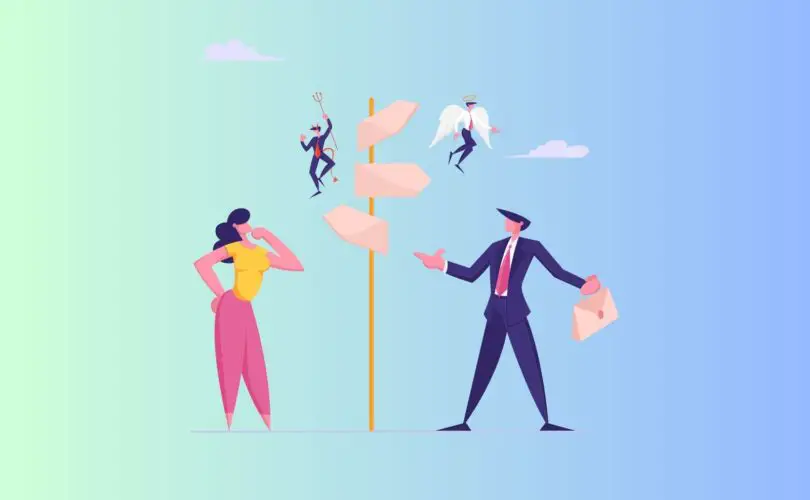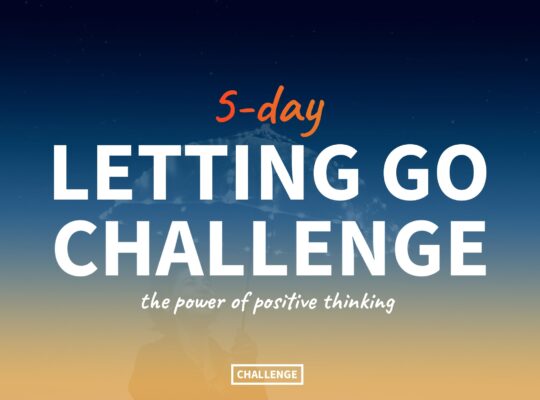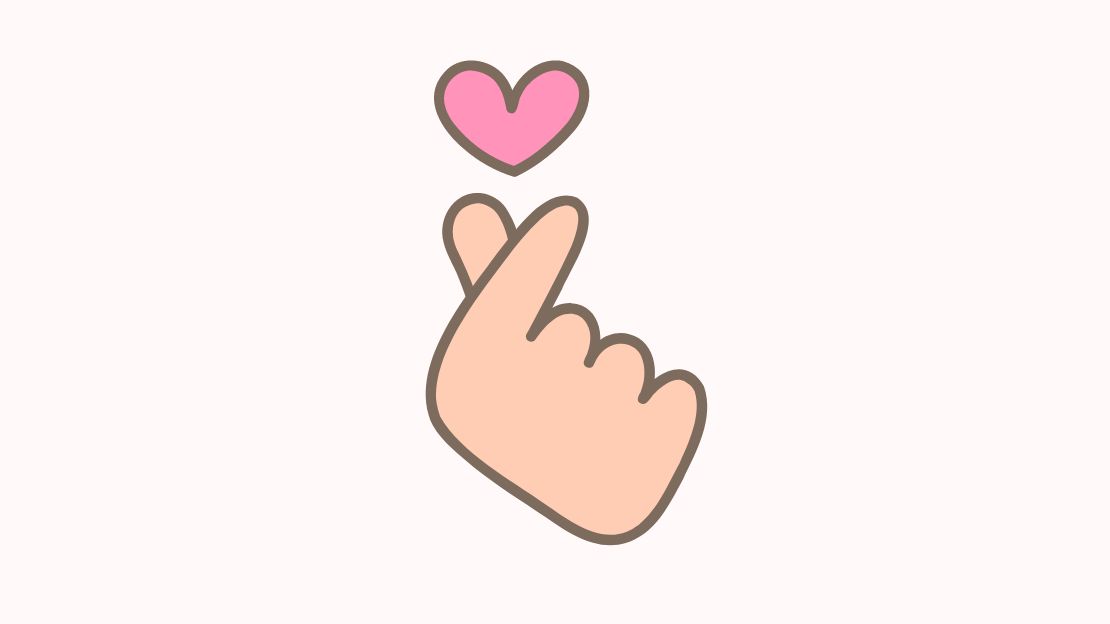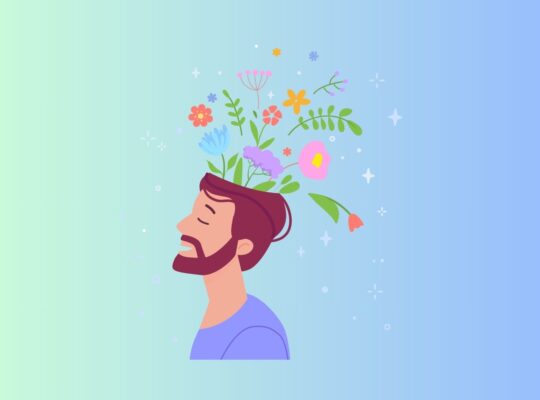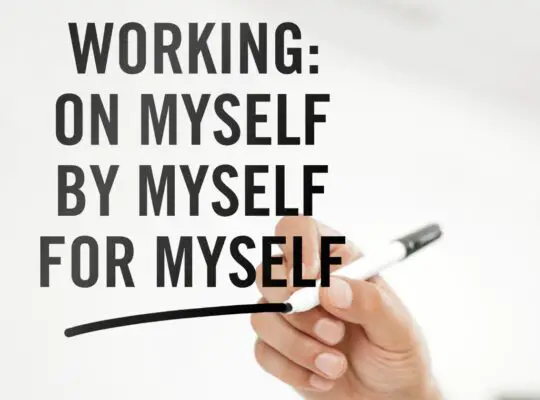Navigating your way through life can be a challenge. Life is much like a road full of twists, turns, unexpected setbacks, and scenic views–sometimes, the ride is easy, and other times, the ride is difficult.
Whether your personal ride through life feels easy or difficult, it always helps to have the tools you need to navigate your way through it. These tools are special skills you can develop to make living your everyday life feel much easier. With these skills, you can make navigating through life’s various ups and downs a lot more manageable.
Rather than allowing problems and setbacks to completely stop your progress, you will have the toolkit necessary for working through them so you can get yourself back on track again.
20 Tools To Successfully Navigate Life
Consider these twenty essential tools to help you navigate through your own life’s journey:
1| Self-awareness
Self-awareness is the ability to know yourself and how you are interacting with the world around you. A self-aware person understands the various impacts they are making; when they notice they are doing something that is causing a problem, they are able to adjust their behaviors accordingly.
People with strong senses of self-awareness also understand their various unique traits. To develop more self-awareness, take time to understand your strengths, weaknesses, values, and passions.
Doing so can help you make smarter, better-informed decisions that will benefit you while also considering the impact you will make on others or your surrounding environment.
You might like: Top 50 Ways To Feel Self Assured
2| Goal Setting
Goal setting refers to the ability to set goals for your future self to meet and your current self to work toward. When a person has a good set of goals, they are challenging themselves to work hard and make decisions for themselves that best align with meeting those goals.
A goal-setter understands that their goals can serve as a framework for their daily lives–having these goals helps them structure how they’ll think and act in order to get themselves closer to those goals.
To use goal setting skills as a way to navigate your life, make sure to set clear, realistic, and actionable goals to stay focused and motivated. When your goals are easy to understand and manageable, you can use them to make meaningful progress toward what you want most out of life, which is an excellent motivator and navigational tool.
You might like:
Design Your Life By Setting and Achieving Personal Goals
3| Time Management
You only get 24 hours in a day; learning how to use that time in a meaningful and productive way is essential for navigating your way through life successfully! Learn how to prioritize tasks, avoid procrastination, and make the most of your time.
Good time management doesn’t only focus on working hard and checking tasks off a to-do list, however. Remember that you also need to manage your time in a way that you respect your personal needs, such as resting and participating in activities you enjoy.
Proper time management gives you the power to do what needs to be done while also doing things that help you rest and relax. This can be a challenging skill to develop, but with patience and practice, it will become easier.
Related: The Complete Guide To Time Management
4| Resilience
Resilience refers to the ability to bounce back from setbacks and challenges, learning and growing from each experience. It is an excellent tool to have for navigating life successfully because it can help you work through setbacks, problems, and challenges much quicker.
It is tempting to allow a challenge to hit the “pause” button on your life. However, with resilience, you can do what is necessary to get moving again. Becoming resilience is another skill that takes time and practice–after all, learning how to keep going after a major surprise or setback is tough! However, learning to do so is possible with time and effort.
Free eCourse: Build Your Resilience
5| Problem Solving
Problem solving skills refer to the ability to analyze situations, think critically, and find effective solutions. Good problem solvers are also willing to “think outside the box,” finding creative and sometimes unorthodox solutions to their problems.
When you use problem solving skills to navigate through life, you are far less likely to find yourself feeling trapped in the face of an unexpected setback or issue. While the setback may temporarily pause your progress, it won’t slow you down for long because you’ll use your strong set of problem solving skills to work through it effectively.
Read this: How Adopting A Proactive Attitude Makes You An Effective Problem Solver
6| Communication
Communication skills involve two major components: expressing yourself clearly and listening actively to others. When you are able to express yourself and fully listen to what other people are saying, you are able to communicate effectively.
Effective communication can bring a lot of positive effects into your life, such as…
- Better boundary setting
- Healthier relationships
- A sense of feeling heard and understood by other people
- A better understanding of the other people in your life
Learning to communicate well can not only help you express yourself clearly, but you’ll also understand what others are trying to tell you and then be able to act accordingly. Good communication can help you avoid a lot of unnecessary problems and keep your life moving along smoothly.
Take a challenge: 30 Day Challenge To Improve Your Communication Skills
7| Emotional Intelligence
Emotional intelligence refers to being able to understand and manage your emotions while also empathizing with others. Basically, an emotionally intelligent person is able to analyze and understand what they or someone else is feeling, why they are feeling it, and how they can handle those feelings properly.
Working through emotions can be difficult, messy work. The bigger and more complicated the emotions, the more challenging they will be to work through. While big emotions aren’t fun (they may even be downright unpleasant), learning how to face them and taking time to analyze them will help you process them in a much quicker, healthier, and more efficient way.
Rather than allowing these emotions to percolate and become worse, good emotional intelligence skills will help you process them accordingly so you can get back to navigating through life without a ton of heavy emotional baggage weighing you down.
Related: 50 Major Payoffs of Raising Your Emotional Intelligence
8| Adaptability
Adaptability is the skill of staying flexible in the face of uncertainty. Life is always going to be filled with unexpected events, challenges, setbacks, and more. Nobody lives a 100% perfect and completely predictable existence–even your most prepared and level-headed friends will face some sort of uncertainty in their lives!
Rather than rigidly trying to fight against life’s changes and challenges, an adaptable person is able to “go with the flow” and act in a way that will help them work through whatever is happening in their life.
Trying to fight against reality is like trying to swim against a powerful ocean current–you will wear yourself out and become overly-tired as the water pulls you deeper and further away from your usual path.
Rather than wearing yourself out trying to fight against life’s inevitable changes and uncertainties, practice being adaptable. Your adaptability will help you navigate through whatever is happening so your life can keep moving forward.
Also read: Adapt To Change and Unlock Limitless Possibilities
9| Self-discipline
Self-disciple is the ability to exhibit self-control and consistency in pursuing your goals. Even when you are working toward something that makes you feel inspired and motivated, it can be easy to feel distracted and lose your way.
It’s normal to feel bored, defeated, and jaded when you are trying to chase after a big dream–especially when your progress feels slow. Life has a way of…well, getting in the way, sometimes.
Having self-discipline in your navigational tool kit is an excellent way to keep yourself on track, even when doing so feels impossible. Self-discipline is a lot like a muscle in the body. If you don’t challenge yourself to stretch and grow your “self-discipline” muscles, they will not develop into a stronger and easier-to-use tool.
Practice challenging yourself to do what is right and in your best interest–even when it would be easier to quit or cut corners. Be consistent, show up every day, and keep doing the work you know is necessary for success.
Time for a challenge: 30 Day Challenge To Improve Your Self Discipline
10| Positive Mindset
Having a positive mindset means you cultivate optimism and maintain a positive outlook to overcome obstacles in life. Even when life gets tough, people with positive mindsets do their best to find the “silver lining” of every dark storm cloud in their lives.
Just because you have a positive mindset doesn’t mean you never experience challenges and tough times–it means you work hard to look on the positive side of things because you know a negative, defeatist attitude won’t fix anything or get you back on track again.
Keeping a positive mindset can manifest in a variety of ways, including…
- Choosing to extract the important lesson learned from a mistake or failure
- Encouraging yourself or others rather than dwelling on whatever went wrong
- Being kind to yourself even when you feel tempted to put yourself down
- Forgiving yourself for doing something wrong (and meaning it!)
- Looking for the goodness in a person or situation
Read more:
- 30 Day Challenge – Creating An Abundance Mindset
- The Art Of Confidence Power Mindset
- How To Transform Yourself With The Yet Mindset
- 10 Ways To Make Use Of “I Matter” Mindset To Bring Order And Harmony To Yourself
- The Fearless Mindset: Become Your Most Fierce Self
- How To Adopt Yes Mindset And Trigger Soaring Success!
11| Financial Literacy
While this tool is a little more concrete than others in this twenty must-haves list, it is a crucial one. Financial literacy means having an understanding of personal finance, budgeting, and saving for the future.
People with strong financial literacy skills are careful with their money; they understand that money is necessary for many aspects of life, so they take great care to ensure they are saving, spending, and allocating their funds accordingly.
Financial literacy skills are foundational because, without them, you can find yourself in some serious trouble. It’s difficult to navigate life successfully when you have financial woes hanging over your head. Rather than allowing debt, bills, and other financial problems to take over your life, you can become more financially literate, so you know how to handle your finances with ease.
Related:
- Financial Stress 101 – Complete Guide and Coping Strategies
- 100 Things You Can Do To Promote Your Financial Wellness
12| Networking
Networking skills refer to the ability to build and maintain meaningful relationships with others to support your journey. Many people associate “networking” with career-based opportunities; for example, you may go to a networking dinner with other professionals in your career field to meet new people and learn more from them. However, networking can extend far beyond careers and professions.
You can network with people who have similar goals, interests, and dreams as you–even non-professional ones! For example, you can network with other people who love sports or people who also share your passion for camping. No matter what the shared interest is, you can find others to network with.
Learning how to network is a great skill for navigating through life because it opens many avenues for learning and growing in areas that you feel highly passionate about. It’s great to find a group of people who not only share your interests, but also encourage you to learn more and grow. Your networking groups are great support systems because those people likely understand your goals and dreams well.
You might like this:
- 20 Ways To Feel “A Part of”
- The Art of Confidence Power Mindset
- 30 Day Challenge For A More Confident You
13| Decision-making
Decision-making skills refer to the ability to make well-informed decisions by weighing options and considering consequences. Every day, you face hundreds of decisions that need to be made.
Sometimes, those decisions are small, such as…
- Which way you want to drive to work
- What you want to cook for dinner
- Which TV show you want to watch before bedtime
- How many candies you want to eat
- How long you want to spend exercising at the gym
But other times, those decisions can be much larger, such as…
- Which insurance provider you want to select for your new car
- What kind of treatment plan you want to pursue for an illness
- How you want to approach a difficult conversation you need to have with a coworker
- How much money you want to spend on your yearly vacation trip
- Who you want to select as the beneficiary on your bank accounts
….and many more! Life is full of decisions, which is why knowing how to make them is such an important skill to have. When you can make sound and careful decisions, you will be able to navigate your way through life much easier. However, it is important to note that even the best decision-makers will still make mistakes from time to time; it is normal and very human to make a regretful decision.
- How to gain clarity over “Confusing Decisions”
- How to make better decisions and become a decision master
- Manifesting your desires using the Power of Decision
- Anatomy of excuses and how to stop making excuses
14| Conflict Resolution
Conflict resolution skills refer to the ability to handle disagreements constructively and maintain healthy relationships. Being able to handle conflict is key to keeping your relationships healthy.
All relationships, no matter what type they are, will face their share of conflict over the course of their lifetimes. It is normal and natural to disagree with others and experience conflict of some variety.
Knowing how to work through these conflicts and emerge on the other side of the situation with the relationship intact is key. Practice being an active listener. Understand why the other person is upset; don’t be afraid to also communicate your grievances.
When both parties involved in the disagreement are able to work through their issues–no matter how uncomfortable or challenging it might be–the more likely it is that they can solve the problem while keeping their relationship together.
- The Complete Guide To Conflict Resolution
- How To Manage Emotions as You Resolve Conflict
- Inner Conflict 101 – The Complete Guide
15| Continuous Learning
Striving to be a continuous, lifelong learner is a fantastic tool to have for life navigation. Stay curious and seek opportunities to expand your knowledge and skills. The second you decide you are “done with learning” and that you “don’t care to try anything new,” you are making the decision to become stagnant, irrelevant, boring, and unaware.
Being a continuous learner means you constantly seek to learn and understand more about the world around you. Rather than being set in your ways and unwilling to learn and grow as a person, you choose to absorb as much knowledge as you possibly can.
Some popular activities for continuous learners include…
- Meeting new people
- Learning about or experiencing new cultures
- Trying new experiences
- Reading about unfamiliar topics
- Watching documentaries or videos about new topics
- Listening to firsthand accounts of people’s life experiences to better understand them
- Taking classes to expand your knowledge
- Asking questions when you feel stuck or confused
Read more:
16| Empathy
Empathy is the skill of understanding and relating to other people’s feelings and experiences. When you are empathetic, you can understand why someone is feeling a certain emotion and express concern and understanding about their experiences.
For example, you may have experienced empathy before when a friend was telling you about their bad day–you were about to relate to their hard time and likely commiserate with them, which validated their experience.
Being empathetic is a great skill for navigating through life successfully. When you can empathize with others, it is much easier to build good relationships, understand the world around you better, and relate with other people on a personal and emotional level.
17| Creativity
Tap into your creativity to find innovative solutions and approach life with an open mind. When you exercise your creativity skills, you can express yourself openly, create things with your own effort and imagination, and develop new ways to solve challenging problems.
Creativity is an excellent way to exercise your problem-solving skills–especially when life throws you unexpected situations to handle.
When you’re able to slow down and think about new and interesting ways to approach problems, you can allow your creative side to take over and come up with some truly innovative ways to solve them. Navigating life feels a little easier when you have creative thinking skills you can use in these sorts of situations.
What’s next:
- How To Increase Mental Creativity By Embracing Your Boredom
- Words That Transform: 40 Power Words for Self-Empowerment and Success
- The Ultimate Formula For A Peaceful Life
18| Gratitude
Expressing gratitude is a great tool for making life feel a little sweeter and easier–both of which are great for navigating your everyday life better. Practice gratitude to cultivate a positive attitude and appreciation for life’s blessings.
Every time you make an effort to remind yourself of what you have to feel grateful for in life, it is easier to face the difficult times when they arise.
You can practice gratitude in a variety of ways. Some people like to journal, others like to meditate, and some enjoy speaking their gratitude out loud. However, you decide to express your gratitude, do it often! The more you exercise and develop this skill, the happier and more positive your life will begin to feel.
Related:
- How To Get Through The Hardest of Times Using The Power of Gratitude
- 8 Ways To Cultivate Gratitude
- 50 Incredible Power Benefits of Gratitude
19| Mindfulness
Mindfulness refers to the ability to be present in the moment, reduce stress levels, and make mindful choices. Often, the world feels hectic and chaotic. When you feel like you are having to quickly jump from one event or task to the next, you can begin to feel disconnected and untethered from your reality.
There are a variety of ways to feel more mindful, grounded, and present throughout the day. Some examples include…
- Turning off your work email notifications when you are out of the office
- Doing something relaxing before bedtime like reading or stretching rather than mindlessly scrolling on your phone
- Doing a check-in with your five senses
- Pausing what you are doing to take some deep, calming breaths
- Making a point to listen carefully when another person is speaking to you
- Taking time to really notice your surroundings and how you are interacting with them with your senses (example: what you see, what you smell, what you feel, etc.)
Read more:
- Mindfulness – The Complete Guide
- 35 Uses and Benefits of the Mindfulness Practice for Your Emotional Health
- How Mindfulness Can Reduce Your Stress
- Mindfulness 101 – Be Present, Be Better
20| Self-Care
Self-care skills refer to the ability to prioritize activities that support your physical and mental well-being.
When you are engaging in a good self-care routine, you are taking care of various needs, such as…
- Proper rest and sleep
- Good nutrition
- Getting exercise and movement into your day
- Spending some time to “disconnect” from socializing
- Taking breaks from mentally taxing situations or tasks
- Engaging in a relaxing hygiene routine (such as your skincare or a nourishing, hot shower)
- …and many more!
Self-care activities and routines vary from person to person; the most important aspect of good self-care skills is that you do them often and make them a priority. When you are taking good care of your mind and body, it is much easier to navigate through life successfully.
You cannot pour from an empty cup, and if you aren’t giving yourself the care and rest that you need, then you cannot expect yourself to work your way through daily living successfully.
You might like:

